when I broke a vase, a glass or a plate my mom always got really mad. When my mom broke something herself she always said "not a problem, we will buy a new one" 🤣
8 Phrases to Avoid and 8 to Use Instead If You Want to Raise a Resilient Child
Childhood adversity may become a reason for the development of psychological problems in adulthood, psychologists say. That’s why it’s important to raise our children in a comfortable, safe environment. However, sometimes this can be difficult, as even a seemingly innocent phrase may badly influence a kid.
We at Bright Side collected a list of phrases you’d better avoid using when speaking to your child and came up with alternative phrases that will help you raise a confident and happy kid.
1. “You’re fine.”
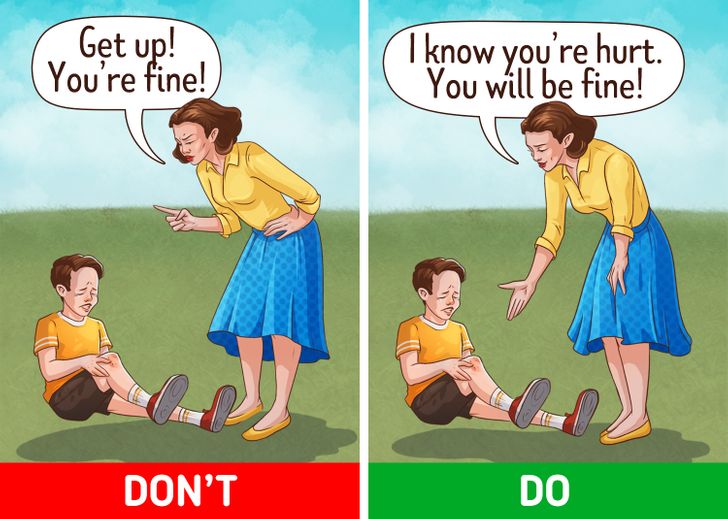
Even though saying, “You’re fine,” may sound as if it calls for a child’s endurance, Christina Clemer, a certified educator, claims that it actually makes the child doubt their feelings.
Imagine that a child fell, skinned their knee a little, and is now crying. Not a big deal, right? However, hearing that “they’re fine” when they fall and feeling anything but may confuse them, causing them to mistrust their real emotions. Instead, it’s important to validate your child’s feelings and confidently reassure them that everything will be okay.
2. “You can handle it. It’s easy.”
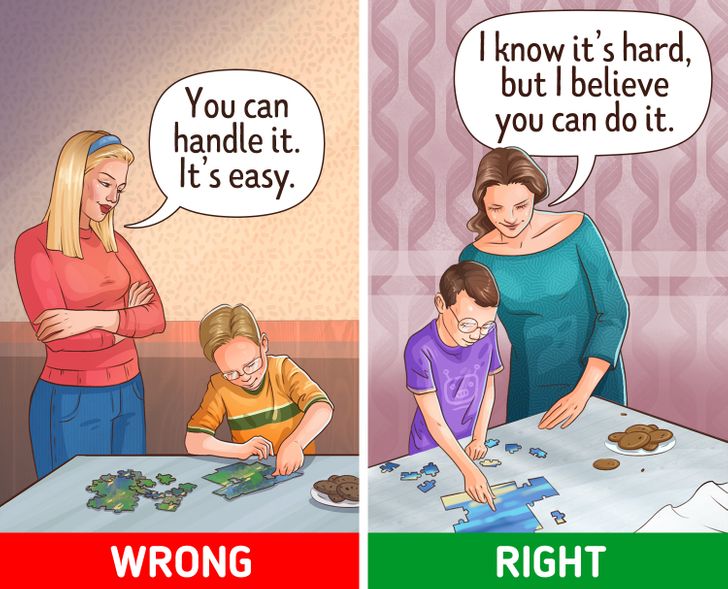
Another thing that can confuse your child’s feelings is when you state that whatever seems challenging to them is actually easy. Making your child feel confused won’t help them do the work any better.
Instead, try to share their worries about the issue, but say that you believe in them and are sure they’ll be able to do it.
3. “You’re making me mad.”
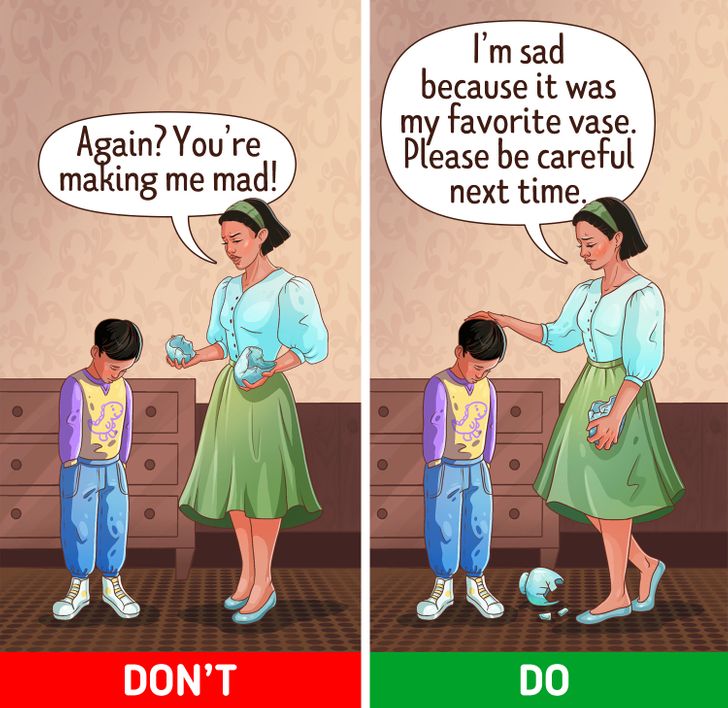
Psychologists say that it’s important for children to understand how their behavior affects other people.
Saying, “That makes me mad,” has a negative connotation; the child will not accept the information expressed in such a negative tone. At first, you’d better show your reaction to the child’s action by saying that you don’t like it, and then start explaining how exactly the action affected your feelings and what the child did wrong.
4. “I hate my job.”
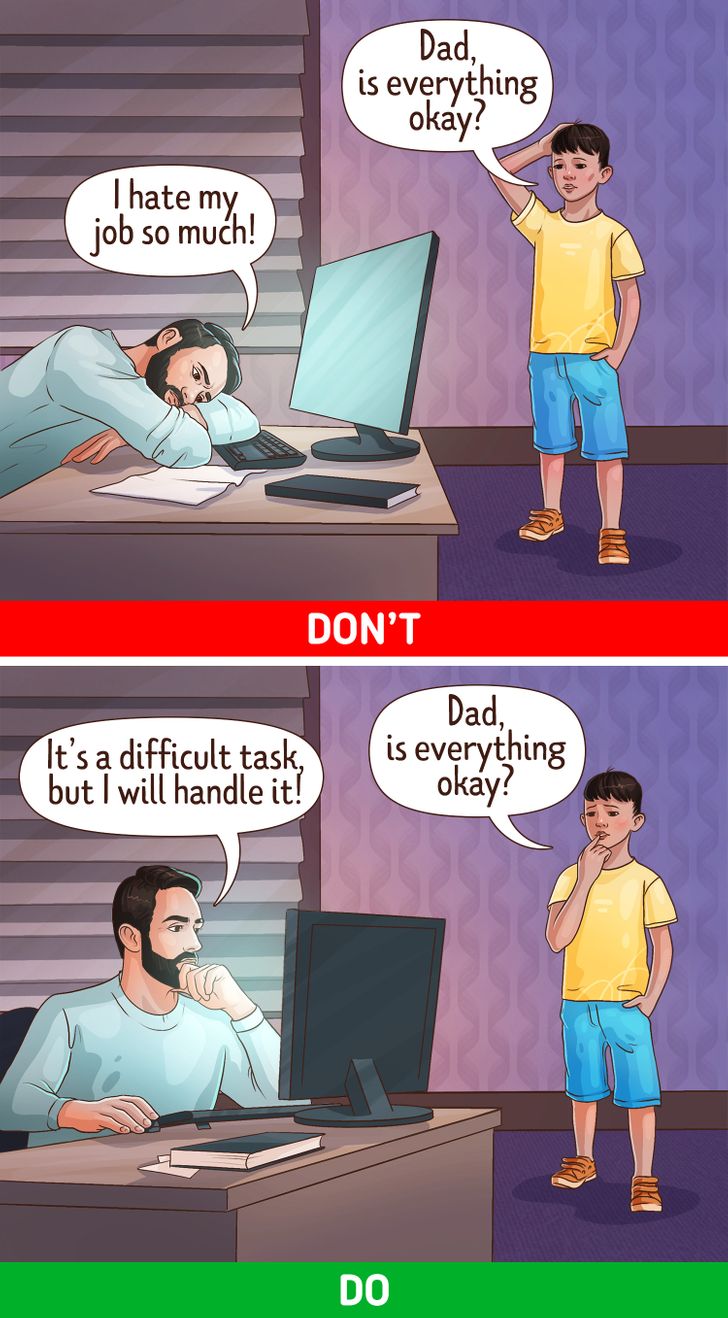
Studies show that parents’ complaints about academic achievements may badly influence their children’s academic experiences.
If you don’t want your child to get disappointed by adulthood and the job experience without even trying to work, it’s better not to use strong expressions like “I hate my job.” It doesn’t mean you can’t talk about your career issues though. It’s important that you don’t complain and find your way out of the bad situation.
5. “That’s too hard for you.”
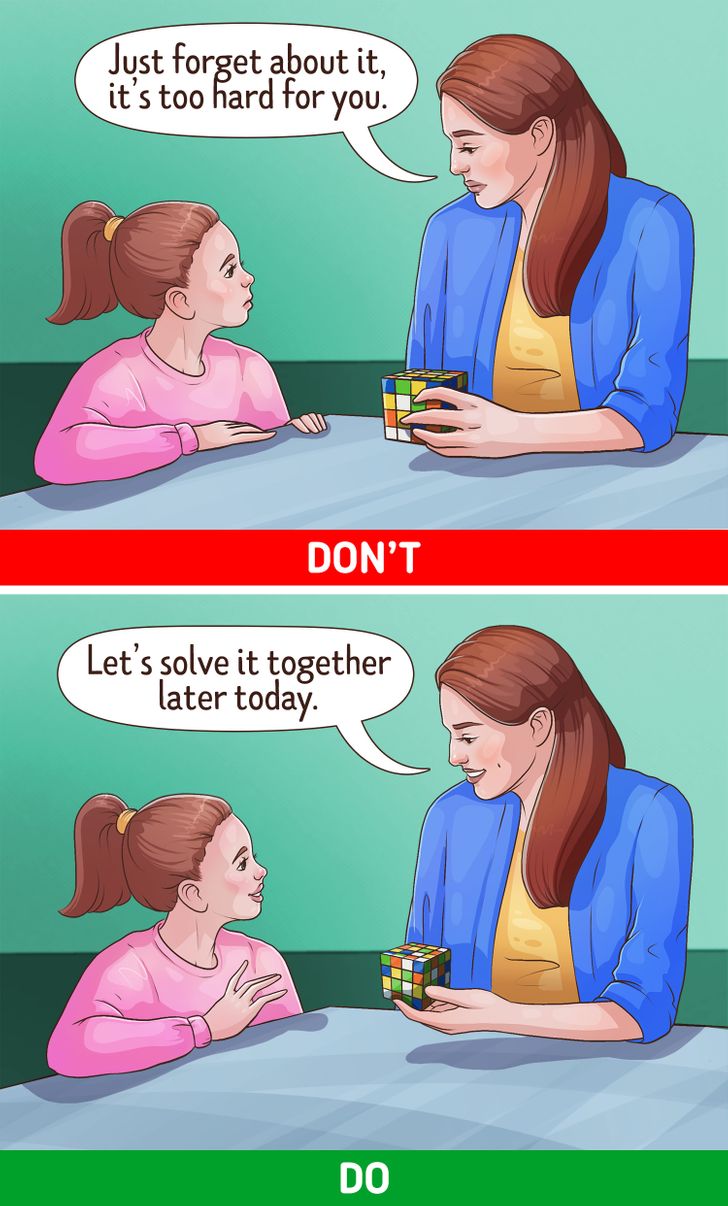
Some educators encourage parents to stop telling their kids that any activity is “too hard for them.”
Children learn by challenging themselves. Every other activity should be harder than the previous one. This way, they learn to go out of their comfort zone and make decisions. If you, as a parent, decide whether your child can or can’t do a particular thing, you won’t let them learn to make decisions. Instead, if you see that your child is struggling and stressing out, save the problem for later. Then you can fix it together.
6. “What’s wrong with you?”
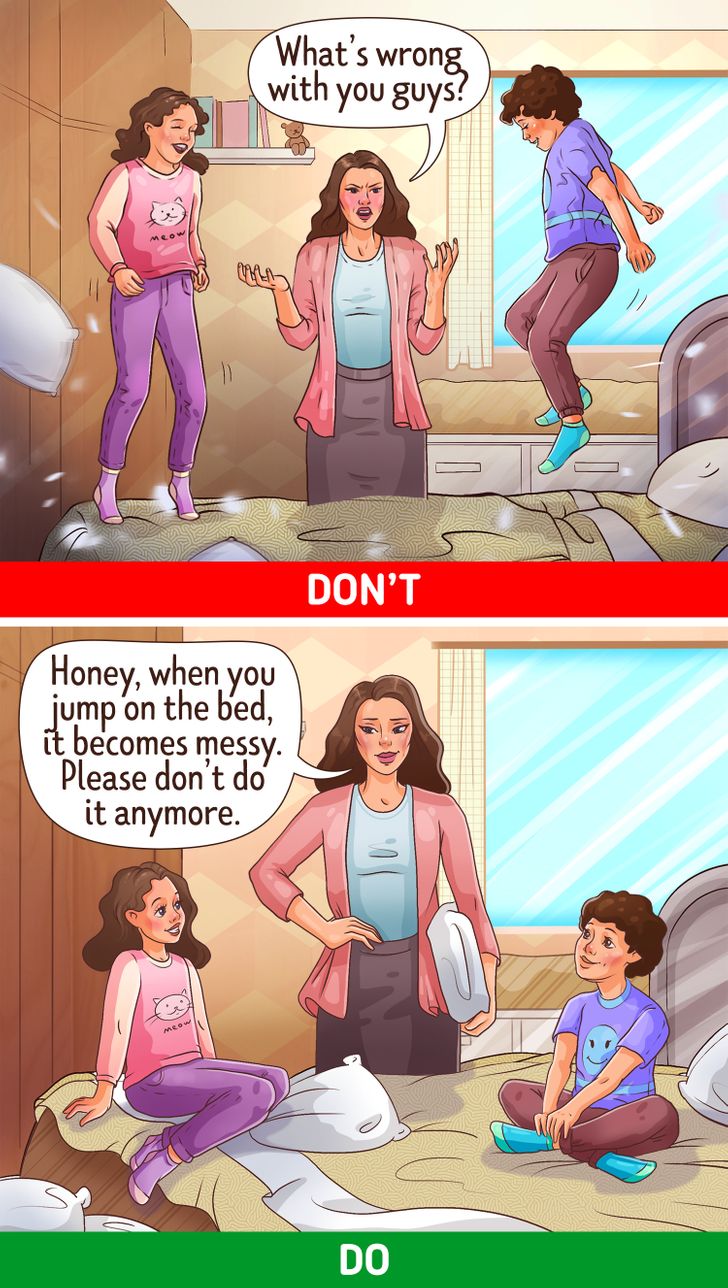
Asking your children what’s wrong with them may make them actually think that they’re not normal, and they’ll begin searching for defects within themselves.
Don’t make your kids feel like they have flaws. Indicate that you don’t like a particular action or habit, but explain why and show that you love them anyway.
7. “There’s nothing to be afraid of.”
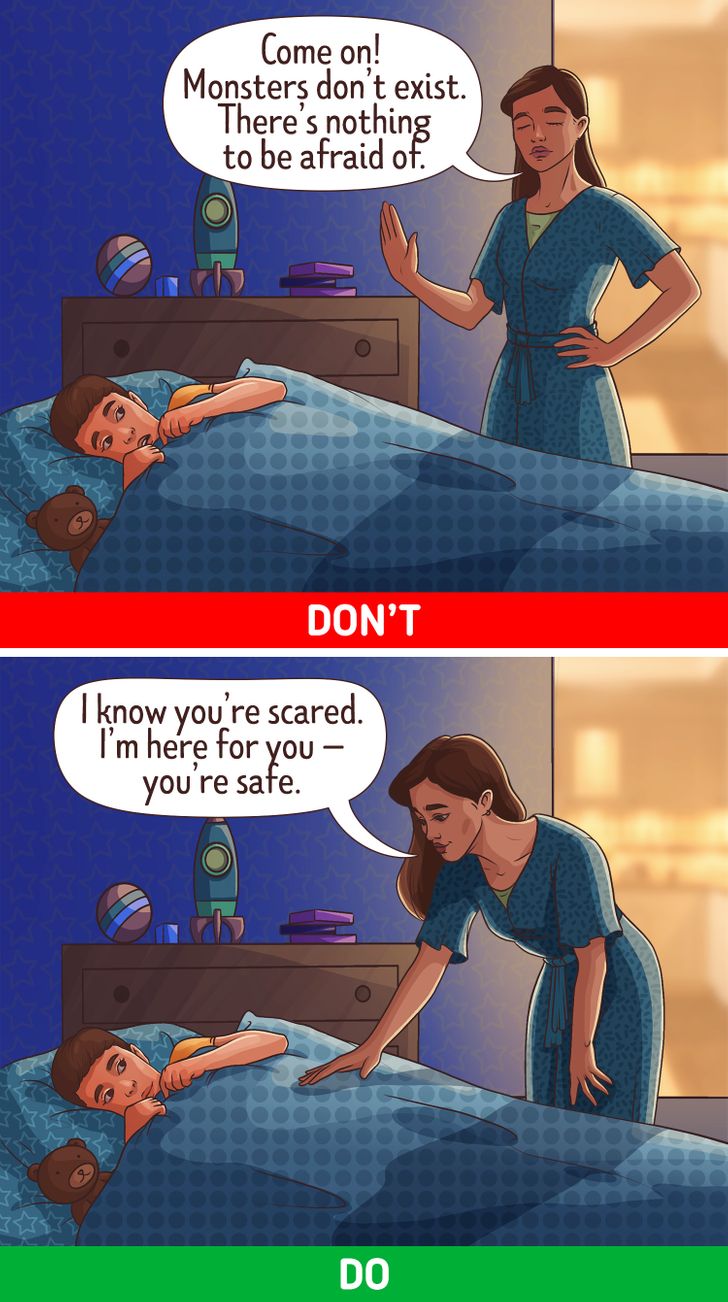
Saying “there’s nothing to be afraid of” to your child may also affect their ability to trust their own feelings. In fact, it’s pretty normal for children to experience fear. Children tend to be afraid of imaginary things, such as monsters under the bed when they’re 4, and non-imaginary beings, like a “bad guy” that will break into the house when they’re 7.
It is important to calm down your child if they’re fearful. Tell them that you’re there for them and show them that they’re safe.
8. “You’re so...”
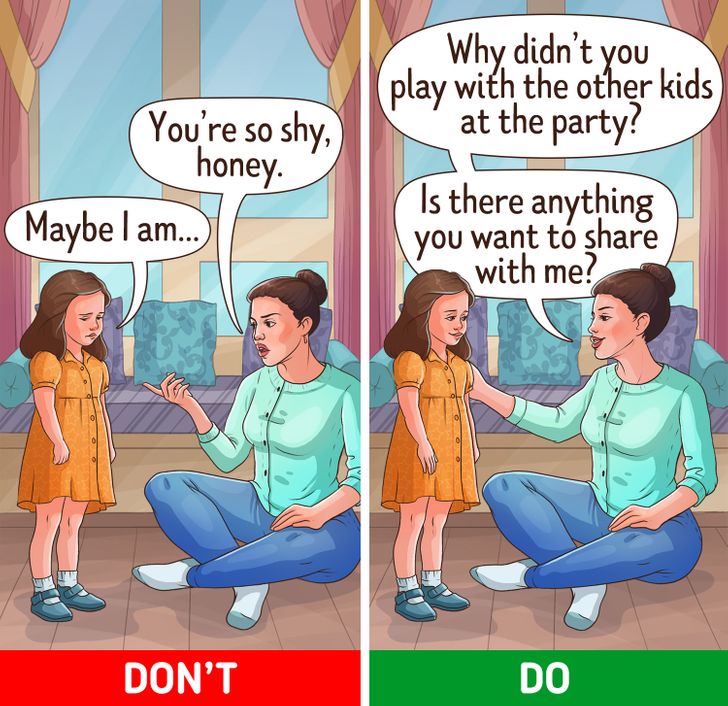
Educators suggest avoiding labeling your kid, especially in a negative way. If you say to your child that they’re shy, lazy, or awkward, there’s a chance that they’ll start acting that way, even if they never did before.
Instead, try to find the core of their bad behavior. Find out why exactly they’re acting that way and suggest how to better understand their confusing feelings and fix the behavior.
Did you know these phrases were harmful? Have you used them while talking to your child?
Comments
really reminds me of my mom ahahaha
feels like moms are the same :D
really thats funny!
One thing to do if your kid breaks something or does something wrong is to say "I feel ____, when you ______, because ____".
Related Reads
9 Things You Should Never Forbid Your Child From Doing
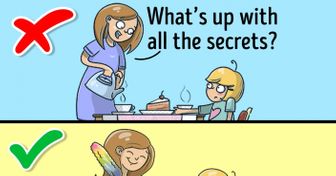
“Screams Desperation,” Nicole Kidman, 56, Stuns in a Risqué Dress, But People Say It’s Not Age-Appropriate

Zac Efron’s Appearance a Few Days Ago Leaves Fans Shocked and Worried

Salma Hayek Celebrates “Bikini Day” in a String Swimsuit That Left Us Stunned

Model Lost Entire Lips in Pitbull Attack, And She Reflects on Her Recovering Journey

A Girl Born Without Nose, Who Was Called “Voldemort”, Proved Everyone Is Beautiful in Their Own Way
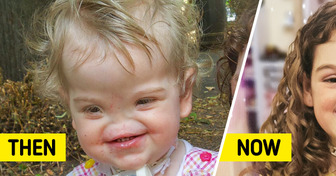
20+ Pictures That Will Make You Question What You Truly Saw

“What Happened to Her Face?” Jennifer Lawrence’s Last Appearance Sparked Some Controversy

Miley Cyrus Causes a Stir by “Leaving Nothing to the Imagination” as She Wears an Extremely Revealing Dress

A Homeless Woman Receives a Full Makeover and Impresses the Whole World

18 Women That Took Part in Transformation Shows and Became Completely New People
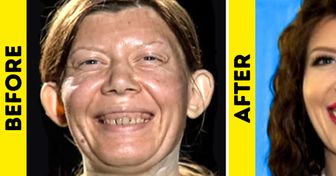
Tom Cruise Deemed Unrecognizable in New Pics With Prince William, as Some Say He Had “Too Much Surgery”
